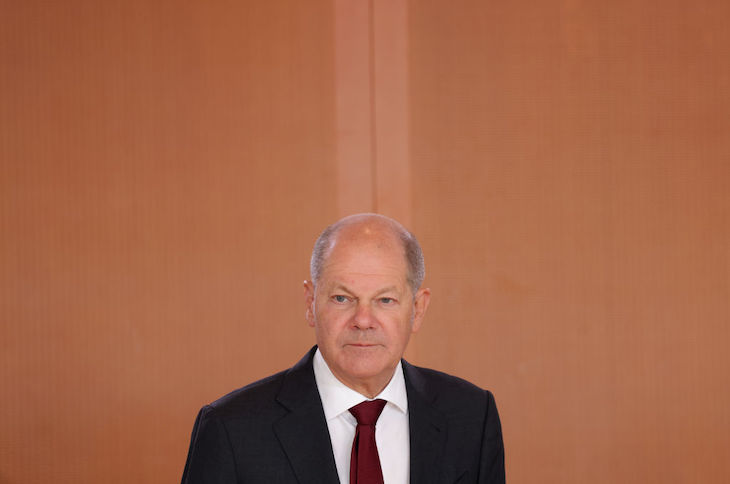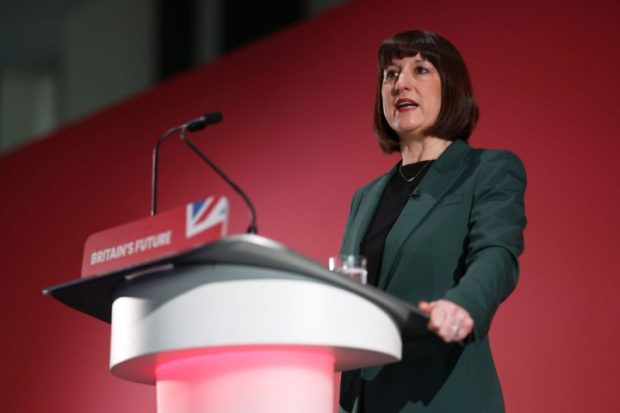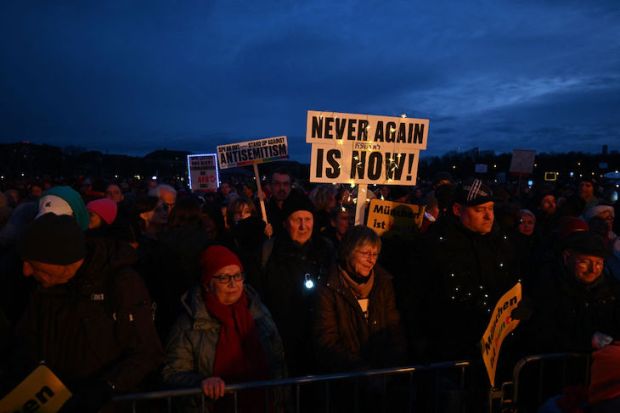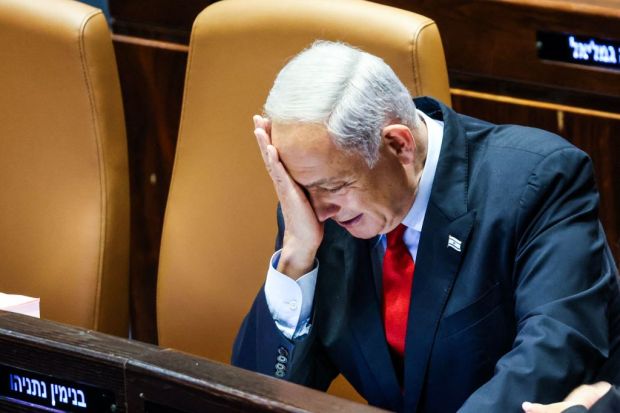Germany’s chancellor is cracking down on asylum seekers – but he is not doing so willingly. The country’s federal government is weighing up a system – similar to the UK’s mooted ‘Rwanda plan’ – for asylum applications to be processed abroad. But Olaf Scholz, who was essentially cornered into the announcement following a marathon session with regional leaders from Germany’s 16 state governments, is sceptical.
‘There are…a whole series of legal questions,’ Scholz said after emerging in the early hours of Tuesday morning from an acrimonious meeting with state leaders. The plan, a 17-page agreement, is an attempt to counter the rise of far-right parties like Alternative für Deutschland (AfD). If put into place, it will mark a further shift away from Merkel’s ‘Wir schaffen das’ (‘We can do this’) declaration in 2015, when Europe was gripped by a huge influx of migrants. But many Germans are sceptical as to whether its measures – including the proposal to use ‘third countries’ to house those waiting to hear the status of their asylum applications – will ever see the light of day.
Scholz’s announcement marks a big shift in Germany’s debate about refugees
The ‘legal questions’ Scholz mentions are a big obstacle: as the UK has found with trying to put in place its ‘Rwanda plan’, such schemes can easily risk falling foul of the courts. Any deal must, as the agreement sets out, comply ‘with the Geneva Convention on Refugees and the European Convention on Human Rights’.
But while the hurdles will be difficult to overcome, Scholz’s announcement marks a big shift in Germany’s debate about refugees: the possibility of processing asylum claims abroad is now on the table and will be subject for further discussions inside the German Bundestag.
The agreement between Scholz’s government and the state leaders also includes a plan to fast track asylum applications in Germany. The federal office for migration and refugees is now tasked with responding to applications in six months or less. Applications filed by asylum seekers from countries with a success rate of less than five per cent, which includes Algeria, Tunisia, Ghana and Kosovo, ought to be processed within three months, according to the document.
This increasingly tough stance towards immigration is widely considered to be a response to the rising popularity of the AfD. But it is also intended to combat the proposed foundation of a new far-left, anti-immigration party led by Sahra Wagenknecht. Prolonged asylum application processes are ‘constant munition for the AfD’, as Reiner Haseloff, the Christian Democratic minister-president of Saxony-Anhalt, put it.
The AfD lost some of its steam during the height of the Covid-19 crisis. It’s soft stance on Russia during the war in Ukraine also cost it support. However, recently, the far-right party has scored wins at the ballot boxes even in western German states, such as Hesse, where the AfD had a hard time gaining acceptance in the early years. The party’s newfound popularity can in part be attributed to an overall dissatisfaction with Scholz’s government among Germans, because the three coalition parties regularly engage in infighting and seem ineffective in producing new legislation.
On top of that, the first nine months of this year saw 230,000 people request asylum in Germany – more than in the whole of 2022. Scholz, just like many other European leaders, is trying to show the electorate that he is able to tighten the grip on immigration.
Whether this strategy will pay off for the chancellor remains to be seen. Leaders of his Social Democrats, including Stephan Weil, the powerful head of the state government of Lower Saxony, had opposed the ‘Rwanda model’ as suggested by Britain before the meeting on Tuesday. Weil and others could easily return to their previous position if they feel it would help their political survival. Many Germans also think Scholz has overcooked his announcement somewhat: the chancellor called the outcome of the meeting ‘a historic moment’. But using those words before any real legislative changes are made risks damaging what is left of Scholz’s credibility.
Got something to add? Join the discussion and comment below.
Get 10 issues for just $10
Subscribe to The Spectator Australia today for the next 10 magazine issues, plus full online access, for just $10.




















Comments
Don't miss out
Join the conversation with other Spectator Australia readers. Subscribe to leave a comment.
SUBSCRIBEAlready a subscriber? Log in